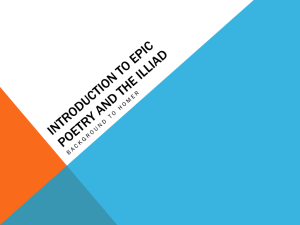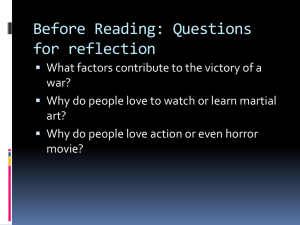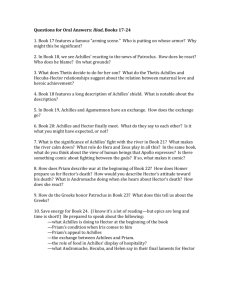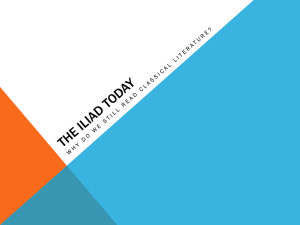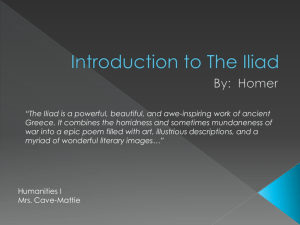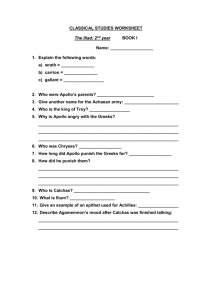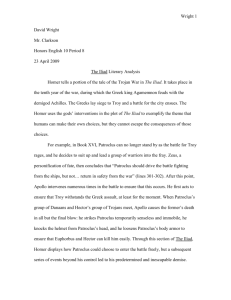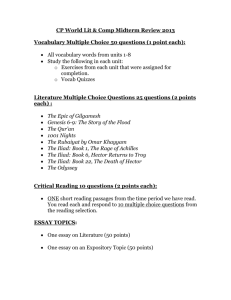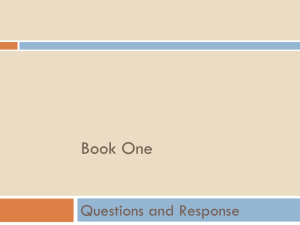The Role of Fate and How Character plays a Role in That in Greek
advertisement
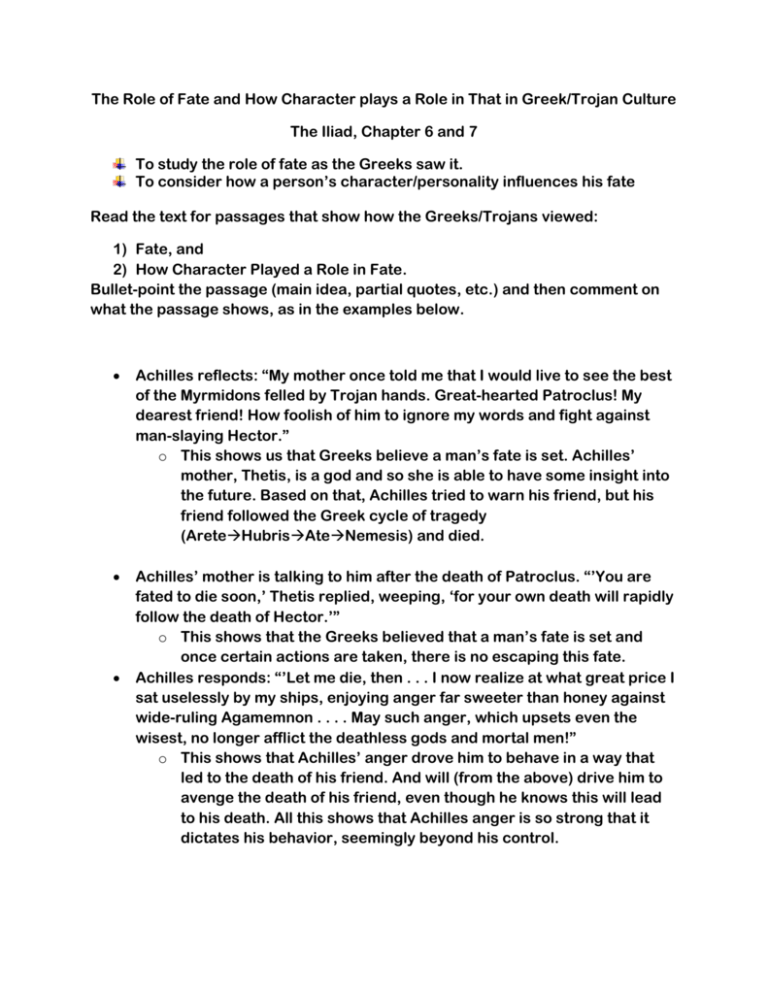
The Role of Fate and How Character plays a Role in That in Greek/Trojan Culture The Iliad, Chapter 6 and 7 To study the role of fate as the Greeks saw it. To consider how a person’s character/personality influences his fate Read the text for passages that show how the Greeks/Trojans viewed: 1) Fate, and 2) How Character Played a Role in Fate. Bullet-point the passage (main idea, partial quotes, etc.) and then comment on what the passage shows, as in the examples below. Achilles reflects: “My mother once told me that I would live to see the best of the Myrmidons felled by Trojan hands. Great-hearted Patroclus! My dearest friend! How foolish of him to ignore my words and fight against man-slaying Hector.” o This shows us that Greeks believe a man’s fate is set. Achilles’ mother, Thetis, is a god and so she is able to have some insight into the future. Based on that, Achilles tried to warn his friend, but his friend followed the Greek cycle of tragedy (AreteHubrisAteNemesis) and died. Achilles’ mother is talking to him after the death of Patroclus. “’You are fated to die soon,’ Thetis replied, weeping, ‘for your own death will rapidly follow the death of Hector.’” o This shows that the Greeks believed that a man’s fate is set and once certain actions are taken, there is no escaping this fate. Achilles responds: “’Let me die, then . . . I now realize at what great price I sat uselessly by my ships, enjoying anger far sweeter than honey against wide-ruling Agamemnon . . . . May such anger, which upsets even the wisest, no longer afflict the deathless gods and mortal men!” o This shows that Achilles’ anger drove him to behave in a way that led to the death of his friend. And will (from the above) drive him to avenge the death of his friend, even though he knows this will lead to his death. All this shows that Achilles anger is so strong that it dictates his behavior, seemingly beyond his control. The Role of Women and Death in Greek/Trojan Culture The Iliad, Chapter 8 Learning Targets for Chapter 8 and the Epilog: To infer how the Greeks viewed the role of women from textual material in chapter 8 and the Epilogue of The Iliad. To infer how the Greeks viewed death and the afterlife from textual material in chapter 8 and the Epilogue of The Iliad. Read the text for passages that show how the Greeks/Trojans viewed: 3) Death and the afterlife, and 4) The role of women. Bullet-point the passage (main idea, partial quotes, etc.) and then comment on what the passage shows, as in the examples below. King Priam to his wife on the death of Hector: “There I will plead with this evil man for the body of our son.” o From this, we see that it is important to the Trojans to have the remains of a dead person. Andromache on hearing of Hector’s death: “Oh, Hector, you have left me in deep grief, myself a widow and our infant son helpless without you. Even if he survives this war, he is now doomed to a hard, sad life, for other men will seize his lands.” o This shows us that a woman without a man is virtually powerless. Even Andromache, the Prince of Troy’s wife, is unable, without him, to keep her lands and ensure their son’s inheritance. Patroclus appears to Achilles: “Then the shade of his dearest friend appeared before him . . . ‘You have forgotten me,’ Patroclus admonished Achilles. ‘Bury me quickly so that I may entere the kingdom of Hades! Until you do this, the shades will not let me cross the River Styx and join them.’” o This shows us the Greeks believe that without proper burial a man’s shade can not enter Hades.
